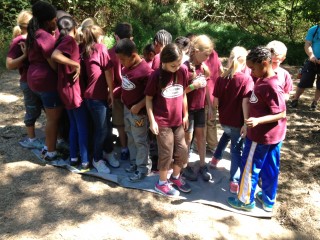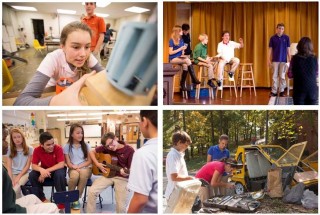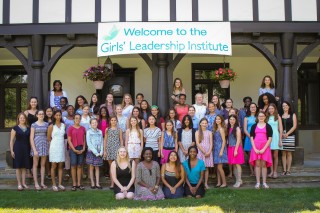In seventh grade history at Riverdale Country School, students learn about governing by doing it.
During the year, teachers lead the class through six simulations that dramatize the units of study: formation of government, the legislative process, foreign policy, the Supreme Court, citizen advocacy, and elections.
Students take on the roles of activists, lobbyists, legislators, judges, and candidates for elective office. They promote bills, weigh legal arguments, stage protests, and respond to foreign-policy crises. History, current events, and the human dynamics of a democracy all come into play.
“A civics class, we feel, should be about learning … how government works,” said Will Bellaimey. “To learn about the process, we feel that you need to do the process. You can’t just read about it.”
Said Michael Sclafani: “You have to speak and work in groups and learn how to compromise.”
The unit begins with the theory about the institution, and then the simulation requires students to analyze a problem, listen to opposing points of view, write formal arguments, speak persuasively, and work to a resolution. Afterwards, students analyze what aspects of the process caused problems and how they can be solved.
“You have to work really hard,” one of the students said. “Amendments have to be made. People disagree. You have to get them on your side.”
“It is the best thing we have done in a very long time,” said Middle School Head Milton Sipp of the new curriculum. The simulations, he said, “have made history come alive.”


